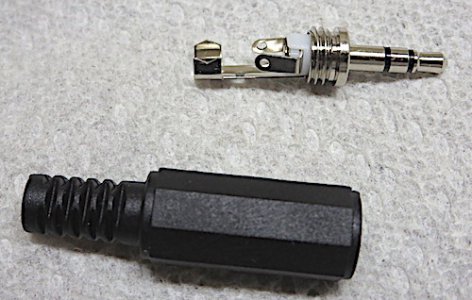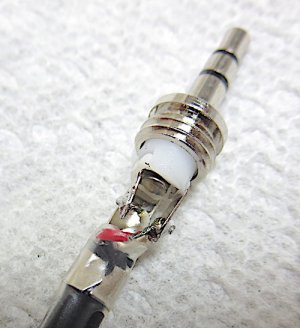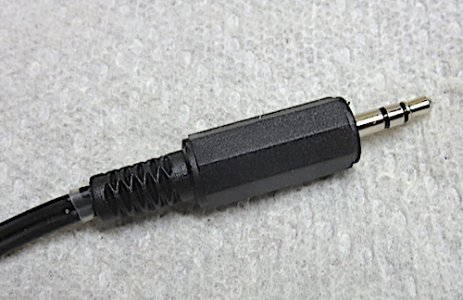- Joined
- Feb 24, 2015
- Messages
- 1,382
Here is an update on soldering the round lugs.
I failed miserably. Everything fought me.
I had a very difficult time tinning the wires. The lugs tinned ok.
My only iron that would tin the wires was a160-240 watt pistol grip gun.
It also worked on the lugs, but the tip was too big to get on the large inside lug.
I clamped the business end (sleeves, rings and tip) in groves of a Panavise. Not so much for heat sink, but to hold it steady.
I gave up and used a plastic jack I picked up at Altex. The regular soldering lugs stuck out and I could get to them.
the big iron did the best soldering but was a little clunky fitting into tight spaces — but it worked and it is all soldered up and it works.


the plastic covers on the later jacks don't look as swavey as the metal ones but the work just fine.
I covered the ground lug with a bit of shrink wrap tubing that extended about 1/5" beyond the plastic jacks strain relief. It provides a little more strain relief. I've used that trick on many guitar, instrument and PA cables.

I failed miserably. Everything fought me.
I had a very difficult time tinning the wires. The lugs tinned ok.
My only iron that would tin the wires was a160-240 watt pistol grip gun.
It also worked on the lugs, but the tip was too big to get on the large inside lug.
I clamped the business end (sleeves, rings and tip) in groves of a Panavise. Not so much for heat sink, but to hold it steady.
I gave up and used a plastic jack I picked up at Altex. The regular soldering lugs stuck out and I could get to them.
the big iron did the best soldering but was a little clunky fitting into tight spaces — but it worked and it is all soldered up and it works.


the plastic covers on the later jacks don't look as swavey as the metal ones but the work just fine.
I covered the ground lug with a bit of shrink wrap tubing that extended about 1/5" beyond the plastic jacks strain relief. It provides a little more strain relief. I've used that trick on many guitar, instrument and PA cables.


